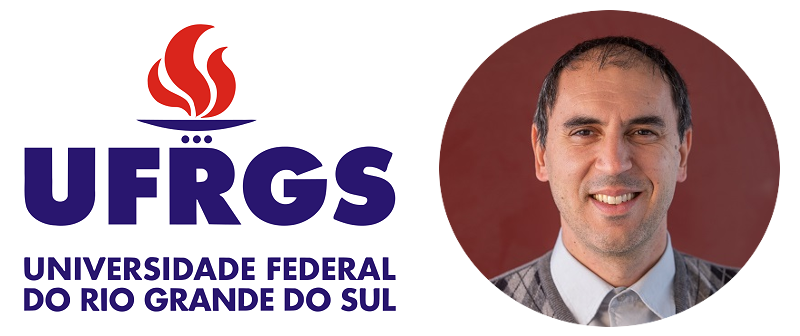Beginning this spring semester, Dr. Charles Yurgel joined the Loewy Institute as a Postdoctoral Associate. Below is a Q & A with Dr. Yurgel where he discusses his research areas and his involvement with The Loewy Institute–please join us in welcoming him!
Welcome to the Loewy Institute, Dr. Yurgel! Could you please tell us a bit about yourself: where you are coming from, your research interests, and what you will be doing as a member of The Loewy Institute?
My name is Charles Yurgel and I am a mechanical engineer from the south of Brazil, where the tradition of industry and engineering has a considerably strong presence in the world. My Master and PhD degrees were obtained at UFRGS (Universidade Federal do Rio Grande do Sul) – a federal university from south Brazil which has a strong tradition in my main competence area, which is metal forming with a focus on the hot forging process.
Loewy Institute is based on research and education, so it fits very well with my interests in improving my career and spreading my knowledge. The areas already in existence at the Loewy Institute–such as material forming, simulation processes, ferrous and non-ferrous materials processed and tested in laboratories–could be joined with the professional skills areas that I have already studied during my time in Brazil as a researcher and professor.
In addition to your experiences with research as a professor, you have had very interesting experiences in industry– could you give some of your favorite examples of how the collaboration between academic research and industry have helped improve manufacturing processes?
An excellent example is one called the “Integrative Project”. As professor and coordinator of various groups in the university, I oversaw many students completing these types of projects. The objective of these groups of students was to solve a specific, existing problem in industry with the company providing guidance and explaining their needs.
Here is an example of just such an “Integrative Project”: The title of the project was: Microstructural Characterization and Evaluation of Mechanical Properties of Steels to Valves used in Pipes. The sequence of this project was as follows: first, a meeting with a component (leader) of the enterprise, the professor/advisor, and the group of students. After that, there was a planning of the semester in which the company provided the material (raw material, valves, samples…) for the students to use in the laboratories of the university and with the company (whenever it was possible). The results of that semester were presented to an examination board composed of professors and leaders of the company. So, during this semester, the group of students increase their competencies using the laboratories, university library, and the industrial complex. For the industry leaders, they could reach their goals without the need of hiring a consulting firm and having to pay that firm a large amount of money. Additionally, it enables the professors/researchers to write a paper with the results.
I think this is a very good and productive example of the interaction between academic research and industry.
Are there any conferences related to your areas of expertise that you are especially looking forward to attending this year (virtually or in-person)?
Due to the pandemic period, many of the events that I planned to participate in have changed. Therefore, at this moment, I just have two events that I have planned to take part in 2022: SENAFOR 2022 and ENGBrasil 2022.
It has been an unconventional past few years, how has research been impacted and what sorts of adaptations do you think have been helpful?
The research, unfortunately, was heavily impacted in the last two years. In engineering it is very important for all people involved to be present in classrooms, laboratories, manufacturing process areas, and in the practice as a whole. However, as engineers, we always need to be ready to solve problems and find solutions. So, the adapting conditions in these difficult times increased online working, with access to new or unused tools for students, researchers, and all involved. The challenge is keeping the interest of everyone involved. As an alternative, it is helpful for online classes to be more similar to practical engineering application while the groups are not able to return to presentation-style or lab courses. An example of that adaptation is a virtual laboratory that could be used by the students and help them do what they cannot do in-person, while studying and working online.
How did you first hear about The Loewy Institute and what inspired you to become a part of its research group?
In 2019 I was working as a coordinator for a mechanical engineering course at a university in Brazil. During that time–and even before–I had the expectation to change and improve my career and be more focused with researching, so that I could join a new competence area. I searched for metal forming process and metallic materials laboratories in Europe and the USA. I talked to some colleagues in Brazil and I decided to send an email to Professor Misiolek to try and initiate a first contact. I felt very welcomed after this first contact with him. After some email exchanging, conversations over a few months, and being told about the competencies of his group and the structure of the university, I started to have a great interest in coming here. Also, Lehigh’s longstanding Institute for Metal Forming [IMF], the curriculum group, and the techniques for forming and processing various materials caught my interest.
Thank you for your time, Dr. Yurgel! Any person / people / group you would like to say “thank you” to?
I would like to thank Professor Misiolek for receiving me with such kindness and professionalism. I hope I can give back what he and his group expect from me.
